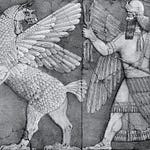Athwart Magazine has published a piece I wrote on the unacknowledged (because unknown) influence of Rousseau on all the so-called “post-liberal” ideologies that have arisen today to challenge the so-called “end of history.”
Rousseau’s initial challenge to liberalism in his 1750 Discourse on the Sciences and Arts is the fount from which all the political drama of the modern world has erupted. Socialism and anarchism, communism, fascism, and romanticism, even identity politics are based upon his critiques and insights. And today, we once again find ourselves in such interesting times, as a profusion of new ideologies challenge liberalism’s seeming total hegemony—
When we look at our political landscape today, we find this same menagerie of fantastical motifs once again being put into practice (or at least being LARPed) by liberalism’s growing number of opponents. On the academic left, we hear calls for the elevation of “Indigenous Knowledge,” which is argued to contain wisdom forgotten by our fast-paced, materialistic society. On the online right, we see a proliferation of anonymous Twitter accounts portraying warrior iconography with explainer-threads celebrating ancient citizenship and manliness. In education, a growing number of alternative models—homeschooling, child-led, tactile, classical and more—have arisen to undermine the bourgeois education factory. Further, the recent “trad” trend of large families and well-defined gender roles—especially when paired with rustic living conditions—is straight out of Rousseau’s novels, but is also found in his most practical work, Letter to M. d’Alembert on the Theatre (1758). Even mainstream liberals have been infected. As astutely portrayed by David Brooks in Bobos in Paradise (2000), bohemian counterculture has been co-opted, now repackaged and sold as a bourgeois “authentic experience.” It seems that Rousseau’s thought not only refuses to die, but haunts us still.
Read the full text here or listen above: Smiling Enemies: What Rousseau Saw Coming









Share this post